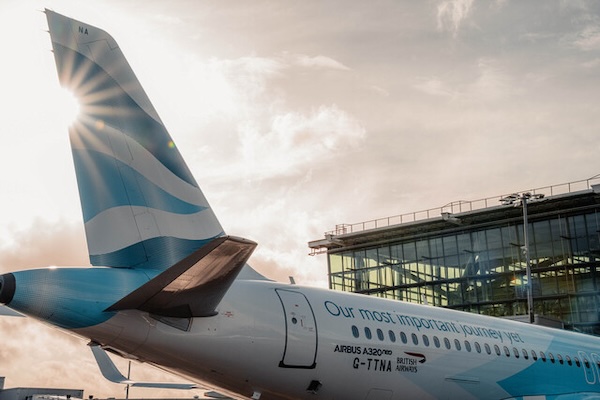British Airways is taking decisive action in environmental responsibility by investing in over £9 million worth of carbon removal credits over six years. The airline asserts its leadership in the UK by spearheading this large-scale initiative.
Through collaborations and innovative projects, British Airways aims to integrate sustainable practices into its operations, establishing itself as a pioneer in the aviation sector’s path to net zero. These efforts are not only about current responsibility but also future readiness.
British Airways and Carbon Removal Credits
British Airways has embarked on a significant environmental initiative by committing to the purchase of over £9 million in carbon removal credits over a six-year period. The airline claims to be the largest purchaser of carbon removals in the UK, having acquired 33,000 tonnes of credits from its CUR8 portfolio alongside other sources such as Climeworks and 1PointFive. This move signifies the airline’s leadership in integrating sustainable practices within the aviation sector.
Understanding Carbon Removal
Carbon removal involves extracting carbon dioxide from the atmosphere and ensuring its safe, long-term storage. British Airways’ approach encompasses various methods, including carbon sequestration in trees and soils, direct air capture for underground storage, and enhanced rock weathering across UK sites. These projects form part of a broader strategy to address the aviation industry’s environmental impact.
Innovative Projects in Carbon Sequestration
In Scotland, a creative project captures carbon emissions from whisky distilleries and repurposes them into building materials. This initiative highlights a unique integration of industrial processes to mitigate emissions. Additional credits are sourced from companies focused on afforestation in Scotland and Wales, while Canadian projects aim to remove carbon from rivers and oceans using alkaline rock particles. In India, British Airways supports a biochar project that benefits female farmers and enhances soil biodiversity—further diversifying their environmental initiatives.
Sustainability Commitments and Industry Leadership
Carrie Harris, Director of Sustainability at British Airways, remarked on the necessity of carbon removals for achieving net zero in aviation. Despite viewing the carbon removal contribution as small relative to overall emissions, she stressed its importance in laying the groundwork for future large-scale climate solutions. Harris emphasised the airline’s dedication to stimulating the market for carbon removals via pioneering investments that drive both immediate progress and future transformation.
Strategic Alliances and Partnerships
Since 2019, the airline has been part of the first group committed to net zero emissions by 2050, demonstrating long-term strategic foresight. It has now become a global alliance member of the Earthshot Prize, founded by Prince William, which acknowledges environmental innovation.
The Role of Carbon Removal in Net Zero Ambitions
Carbon removal forms a fundamental component of British Airways’ broader ambition to achieve net zero emissions. By investing in technologies and partnerships that promise long-term carbon management, the airline is not only addressing its environmental responsibilities but also setting a sector-wide benchmark. Such commitments are essential in light of the aviation sector’s considerable footprint, and British Airways’ actions illustrate a proactive stance.
Challenges and Future Perspectives
While British Airways acknowledges the relatively small scale of its current carbon removal initiatives, the airline is committed to scaling these efforts in future. This proactive engagement showcases an understanding of the complex challenges involved in sector-wide decarbonisation. Collaborations with technology leaders and researchers will be key as the airline seeks scalable solutions to meet its long-term sustainability goals.
British Airways’ strategic investment in carbon removal credits sets a benchmark in the aviation industry, positioning itself as a leader in sustainability initiatives. Such commitments are indispensable for meeting future climate goals.
As the airline continues to expand its carbon management strategies, it exemplifies how industry leaders can balance operational demands with environmental responsibilities, paving the way for a more sustainable future in aviation.

